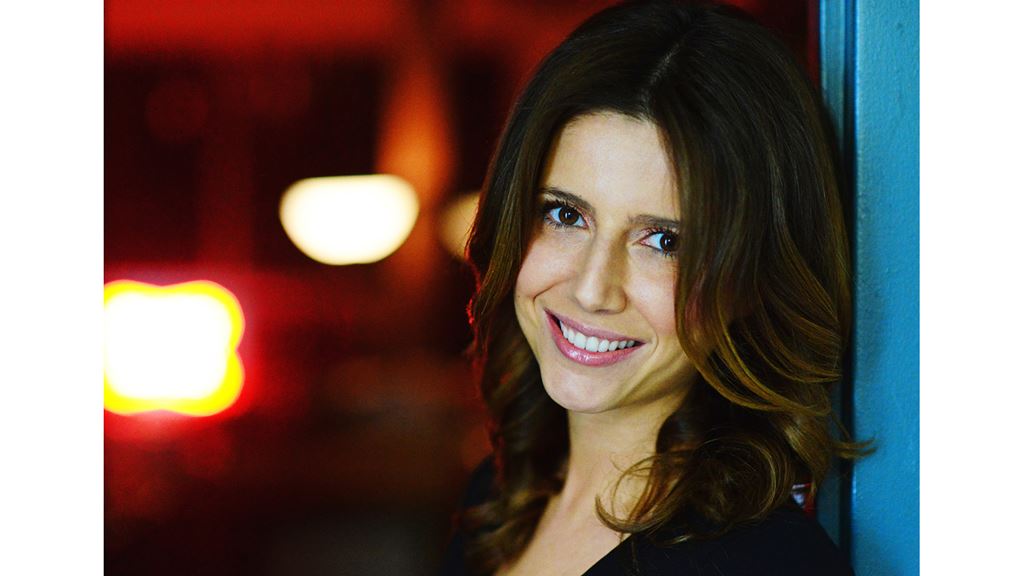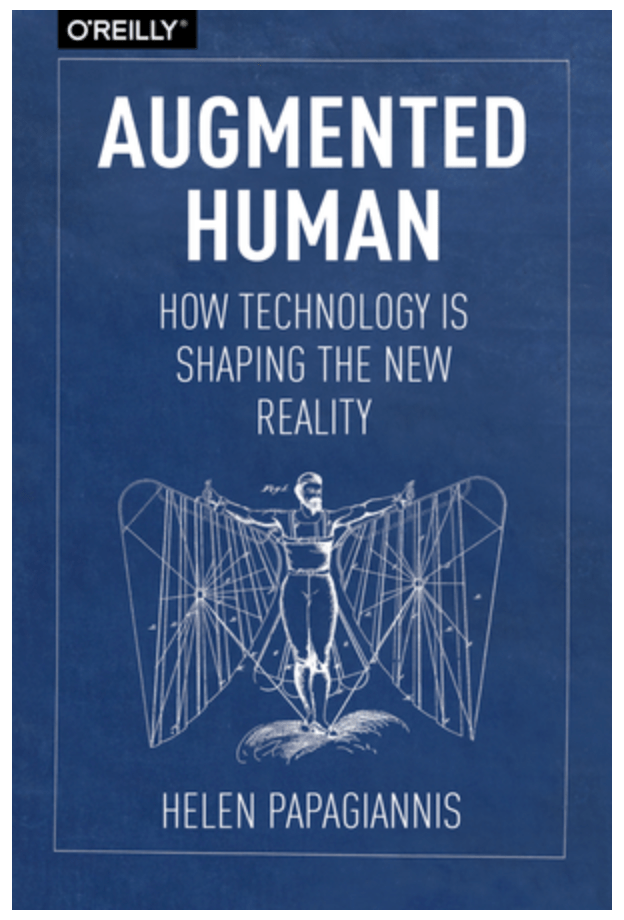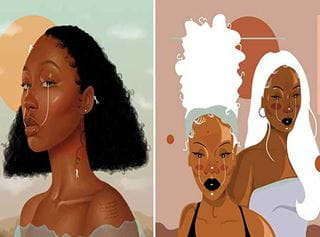
AR expert talks tech potential in era of COVID-19
 by Meagan Kashty – May 13, 2020
by Meagan Kashty – May 13, 2020 AR expert talks tech potential in era of COVID-19
Have you had a panther prowl your living room with the help of Google 3D animals? Used an Instagram filter to add some spark to your latest selfie? Maybe in recent weeks, you’ve pretended to be on vacation with a sunny, beach-themed Zoom background?
If so, you’ve only scratched the surface of the vibrant world of augmented reality (AR) – technology that allows you to enhance or augment a real image by adding virtual elements.
With the COVID-19 pandemic forcing everyone to re-assess the ways they conduct business, more thought is going into the innovative ways AR can be applied to every industry, from travel to education. While AR may have only recently become top of mind for some, Dr. Helen Papagiannis (Interactive Multimedia ’02) has been studying the cutting-edge tech for nearly 15 years.
A world-renowned AR researcher, designer and technology champion, Papagiannis has presented at global conferences and events such as Tedx and SXSW, and she is author of the book Augmented Human. Earlier this year, she was the keynote speaker at the Pilon School of Business Student Conference, where she delighted the audience with her real-world examples of how, in present and future realities, AR can enhance the human experience.

Papagiannis is an AR pioneer. She completed her PhD on the topic in 2014, long before it became a mainstream term. While she fully embraces AR’s potential, over the years, she’s become used to hearing from skeptics. “One of the biggest misconceptions is that AR is science fiction – that it’s something we won’t be using until years in the future,” she says. “But it’s all possible today, and the technology has now taken centre stage with a big part of our daily lives shifting to virtual modes amid COVID-19. AR is no longer the future, it’s now. In my consulting practice XRGOESPOP.com, I’m working with clients from around the globe helping them navigate the possibilities in these digitally accelerated times.”
Papagiannis says one of the reasons people are resistant to AR is because they often see technology as something cold or distant. But her interest is based in the human side of technology. Ways to extend our humanity by creating things that may not otherwise be possible in reality. “It’s important to ask how we can use these new technologies and virtual interactions to foster and support human connection and creativity, particularly in the current climate as we self-isolate and are physically disconnected from friends and family. How will we design experiences that are meaningful and help uplift humanity now and beyond?”
Startup Magic Leap, for instance, has created virtual humans that can help those on the autism spectrum learn to pick up on social cues and practise their job interview skills. OrCam, a company working on augmented reality for the blind and vision impaired, is developing tech such as glasses that can read text to the user, recognize familiar faces and identify products at the store based on packaging and bar codes. AR is also making art come alive for visitors to the London, UK-based museum Tate Britain.
Papagiannis focuses much of her time sharing the possibilities of AR in her consulting practice and keynotes, but she also works on passion projects that focus on ways AR would be beneficial in the future. Long before Toronto’s High Park was closed for cherry blossom season, Papagiannis tweeted about Shanghai botanical garden live-streaming their cherry blossom tours, and wrote a blog post speculating how AR and VR can be used for virtual travel and tourism in a time of self-isolation and closed borders.
In a recent article, Papagiannis examined how applications of AR and VR can help us overcome the isolation of COVID-19 lockdowns, and how they can be used once cultural institutions, schools and workplaces re-open.
"One of the biggest misconceptions is that AR is science fiction – that it’s something we won’t be using until years in the future. But it’s all possible today, and the technology has now taken centre stage with a big part of our daily lives shifting to virtual modes amid COVID-19."
Although much of Papagiannis’ work is forward-thinking, she’s quick to credit the individuals and organizations that helped her when she was first beginning her career. While a Sheridan student, she received the Glenna Carr scholarship, an award that recognizes the academic performance of a student who demonstrates an aptitude of study related to their field, in addition to demonstrated leadership skills. Papagiannis says that helped her lay the groundwork for her future studies.
Taking on a role as project lead with Bruce Mau Design on “Massive Change” immediately after graduation helped her build her portfolio, giving her the confidence to dive headfirst into a field of study that was unfamiliar to so many. She continued to build her career as the chief innovation officer at Infinity Augmented Reality Inc., and a senior research associate at York University’s Augmented Reality Lab. In 2013, she was named among the NEXT 100 Top Influencers of the Digital Media Industry.
“I remember the moment I experienced AR for the first time 15 years ago, and I was just speechless. I was mesmerized,” she says. “I had no hesitation dedicating myself fully to it. I can’t wait to see what the next 15 years brings.”
Written by: Meagan Kashty, Digital Communications Officer at Sheridan.
Media Contact
Meagan Kashty
Manager, Communications and Public Relations




